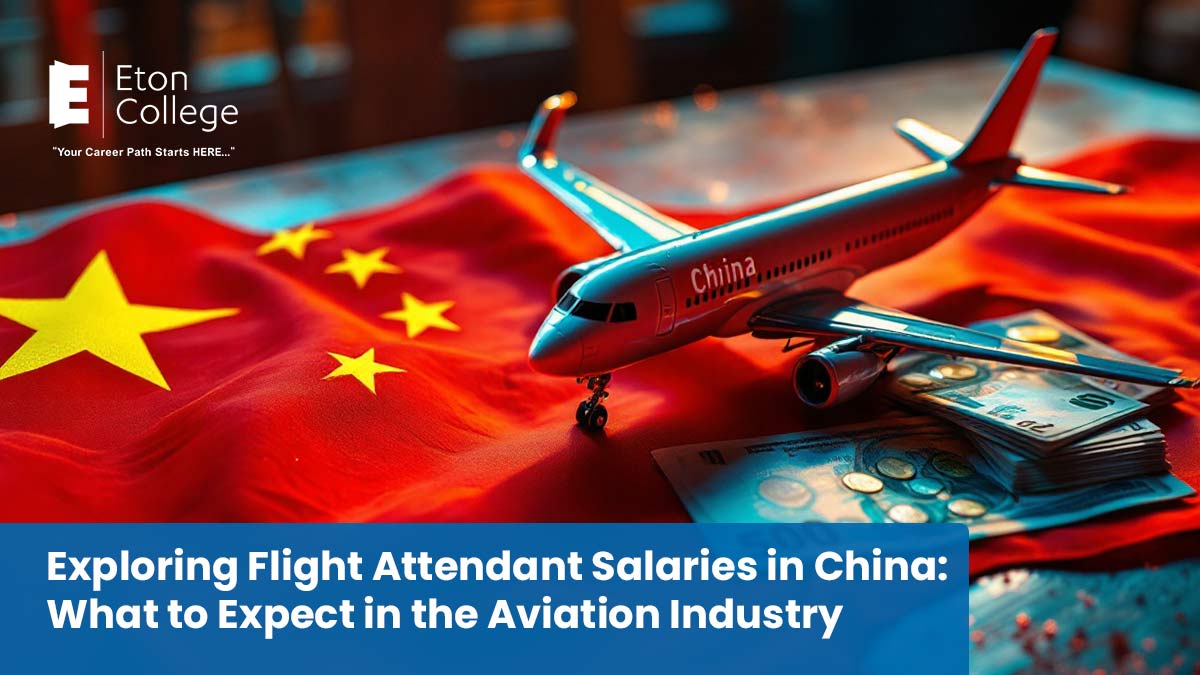Key Takeaways
- The average flight attendant salary in China is around ¥213,032 per year, and salaries vary depending on experience and airline.
- Entry-level flight attendants typically start at ¥154,216, while experienced attendants can earn up to ¥265,717 annually.
- Additional benefits, such as travel perks, health insurance, and housing allowances, contribute to the overall compensation.
- Working for major airlines may result in higher pay and more comprehensive benefits compared to regional carriers.
- Career advancement opportunities in aviation can lead to increased earnings and job stability for flight attendants.
A career as a flight attendant offers the chance to travel, meet diverse people, and gain unique work experiences. For those considering this career path in China, understanding the salary structure is an important part of deciding if this is the right job for you. The flight attendant salary in China can vary widely depending on factors such as experience, airline, and specific job responsibilities. This article explores the average salaries, what impacts earning potential, and additional benefits that come with working as a flight attendant in China’s growing aviation industry.
Average Flight Attendant Salary in China
As of recent data, the average annual salary for a flight attendant in China is around ¥213,032, which translates to an hourly wage of approximately ¥102.42. For those just entering the profession, entry-level flight attendants with one to three years of experience typically earn about ¥154,216 annually. Meanwhile, experienced flight attendants, with over eight years of work, may earn closer to ¥265,717 per year.
These figures provide a helpful benchmark, but it’s important to remember that salaries can fluctuate based on the airline, specific job responsibilities, and other factors. Additionally, many flight attendants receive a yearly bonus, averaging around ¥5,667, which adds to their total income.
Factors That Impact Flight Attendant Salaries
Several key factors influence flight attendant salaries in China, including experience, education, and the specific airline. Here’s a closer look at each factor:
- Experience: Experience is a significant determinant of salary. Those new to the role tend to start on the lower end of the pay scale, while senior flight attendants or those with specialized skills, such as fluency in multiple languages, often earn higher wages. Experience also affects opportunities for bonuses and other incentives.
- Education and Training: Most airlines in China require flight attendants to have at least a high school diploma, though additional education or certifications can increase earning potential. Specialized flight attendant training or advanced certifications can make candidates more competitive, potentially resulting in higher starting salaries.
- Airline: Different airlines offer different salary ranges, with major airlines often paying higher wages than smaller or regional carriers. Additionally, well-established airlines may offer more comprehensive benefits, such as allowances for housing or transportation.
- Flight Routes: International flights typically come with higher pay rates than domestic routes due to the longer hours and additional responsibilities involved. Flight attendants working on long-haul flights often receive allowances or additional pay, making these roles more lucrative.
Comparing Salaries Across Airlines in China
China’s aviation industry includes major airlines like Air China, China Southern Airlines, and China Eastern Airlines, as well as smaller regional carriers. Flight attendant salaries can vary depending on the airline, with larger airlines often providing higher pay and more extensive benefits. For instance:
- Air China: As one of the country’s largest airlines, Air China offers competitive salaries and benefits. Experienced flight attendants at Air China can earn above the industry average, and the airline often offers additional perks for those working international flights.
- China Southern Airlines: Known for its extensive network of both domestic and international routes, China Southern Airlines tends to offer similar pay scales as Air China, though specific salaries vary based on the route and experience level.
- Regional Airlines: Smaller airlines in China may offer lower base salaries compared to major carriers, but they often come with advantages like shorter routes and more flexible schedules, which can appeal to those looking for work-life balance.
Additional Benefits and Perks
Beyond the base salary, flight attendants in China often receive a range of additional benefits and perks. These can include:
- Travel Benefits: One of the main perks of being a flight attendant is the ability to travel affordably. Many airlines offer discounted or even free flights for their employees, and some also extend these benefits to family members.
- Health Insurance: Most airlines provide health insurance, which typically covers medical expenses and emergency care, ensuring that employees and their families are well-protected.
- Housing and Transportation Allowances: Some airlines offer allowances for housing or transportation, especially for those based far from their home city. These allowances can significantly reduce living costs, effectively increasing overall earnings.
- Bonuses: In addition to the base salary, many flight attendants receive performance-based bonuses, often issued annually. Bonuses may depend on factors like tenure, performance reviews, or the airline’s profitability.
Career Growth and Salary Increases
Career advancement opportunities for flight attendants in China can lead to salary increases. As flight attendants gain experience, they may be promoted to senior roles or positions with more responsibilities, such as lead flight attendant or in-flight supervisor. These roles come with higher salaries and may also offer greater job stability.
Many airlines also encourage internal promotions, allowing flight attendants to transition into other areas within the aviation industry, such as training or management roles. These positions generally come with higher pay and expanded benefits, offering long-term growth potential for those looking to stay in aviation.
Start Your Journey as a Flight Attendant
Selecting the right flight attendant certification program in Vancouver is a crucial first step toward a career in aviation. With outstanding programs available at institutions such as Eton College, Canadian Tourism College, and Vancouver Aviation College, students benefit from a thorough mix of classroom instruction and hands-on training.
This comprehensive preparation equips you to excel in the competitive aviation industry. If you’re eager to embark on this exciting path, Vancouver’s leading flight attendant schools offer the perfect foundation for a fulfilling and adventure-filled career in the skies.
FAQ: Flight Attendant Salary in China
- What is the average flight attendant salary in China?
The average salary for a flight attendant in China is around ¥213,032 per year, or approximately ¥102.42 per hour. However, salaries vary based on experience, airline, and specific duties. - How much do entry-level flight attendants make in China?
Entry-level flight attendants with one to three years of experience typically earn about ¥154,216 annually. As they gain experience, they may see their salaries increase. - Do flight attendants in China receive bonuses?
Yes, many flight attendants in China receive annual bonuses, averaging around ¥5,667. Bonuses may depend on factors such as performance, seniority, and the airline’s financial performance. - Are there additional benefits for flight attendants in China?
In addition to salary, flight attendants often receive travel benefits, health insurance, and housing or transportation allowances, which can enhance their overall compensation package. - Can flight attendants advance in their careers?
Yes, flight attendants can advance to senior roles or transition to other aviation positions, such as in-flight supervisors or trainers, which often come with higher pay and expanded responsibilities.




